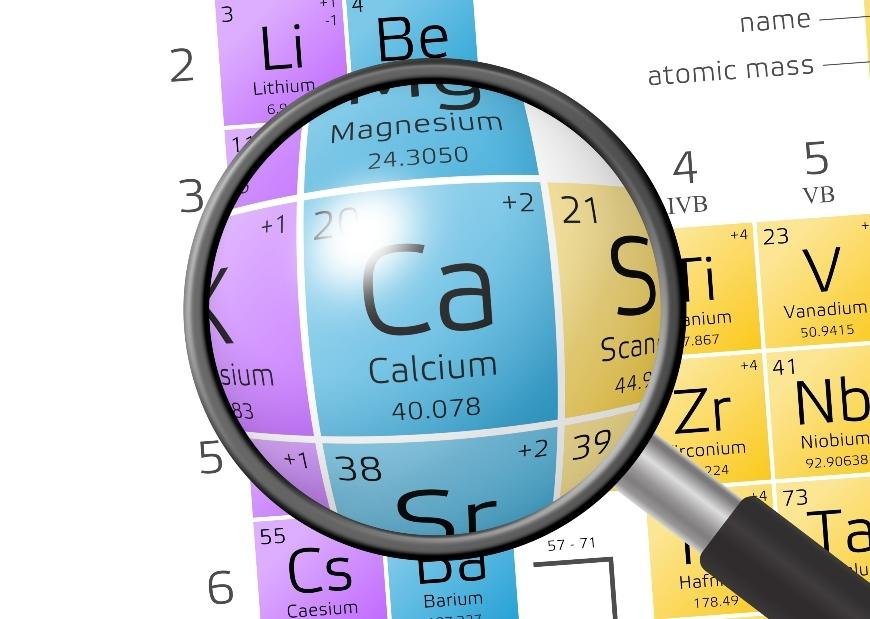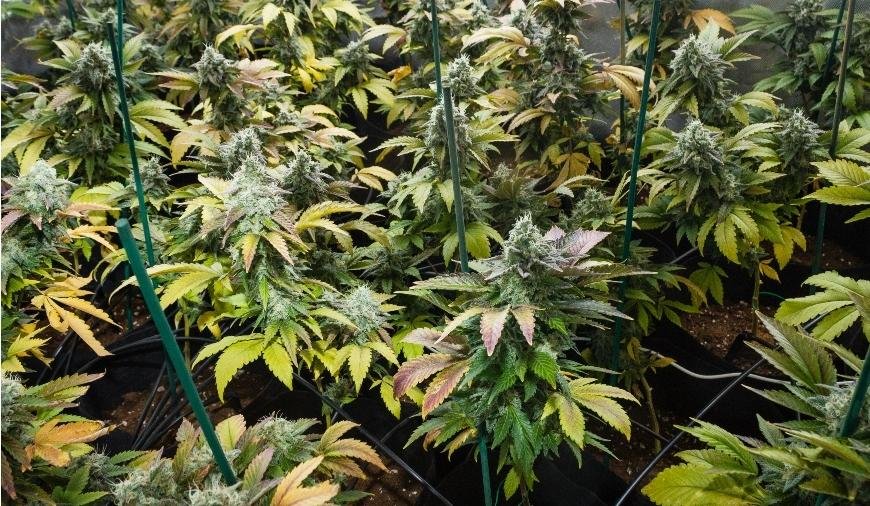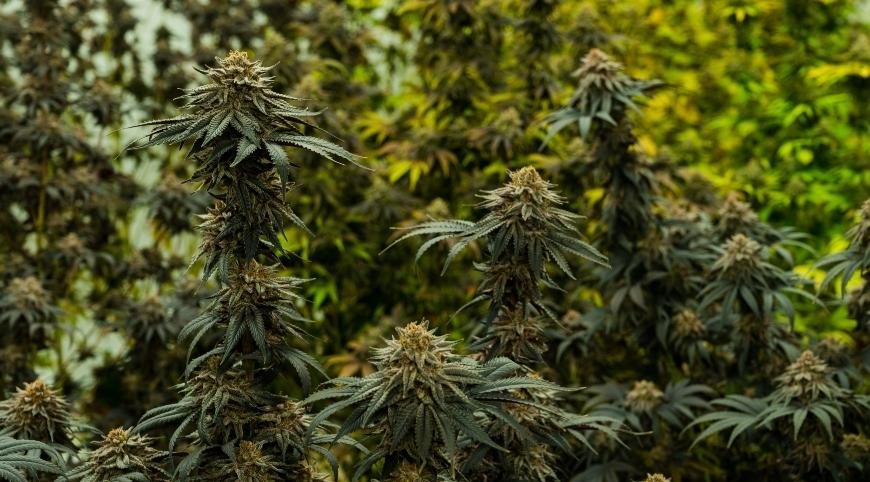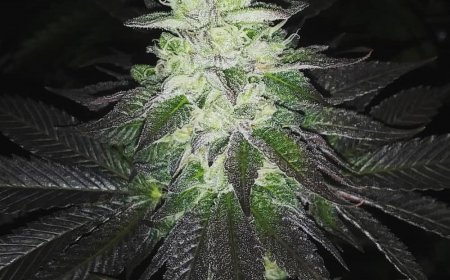Calcium for Cannabis Plants
Discover the importance of Calcium for Cannabis Plants, how to spot calcium deficiency, and solutions to ensure healthy growth in our comprehensive guide.

Calcium for cannabis plants is an essential nutrient that plays a crucial role in their overall health and productivity. As a secondary nutrient, calcium works alongside other vital nutrients to ensure optimal growth and development of your marijuana plants. In this comprehensive guide, we will delve into the importance of calcium, its benefits for cannabis plants, as well as how to spot and address any deficiencies.
In the following sections, we'll explore the role of calcium in cannabis cultivation and how to recognize and address any deficiencies. We'll discuss the symptoms of calcium deficiency in detail so that you can easily identify them in your own garden. Furthermore, we'll provide practical advice on addressing these deficiencies by adding supplements or using calcium-rich fertilizers while maintaining optimal soil pH levels.
Lastly, our discussion will cover monitoring and maintaining adequate calcium levels in the soil through testing methods and tips on avoiding common issues associated with low calcium content. By understanding the significance of proper calcium intake for cannabis production, you'll be better equipped to ensure healthy growth and bountiful yields from your beloved plants.
Table of Contents:
- What is Calcium and Why is it Important for Cannabis Plants?
- Definition of Calcium
- Benefits of Calcium for Cannabis Plants
- Symptoms of Calcium Deficiency in Cannabis Plants
- How to Address Calcium Deficiency in Cannabis Plants
- Monitoring and Maintaining Adequate Calcium Levels in the Soil
- Ensuring Healthy Growth of Cannabis Plants with Adequate Calcium
- Frequently Asked Questions Calcium for Cannabis Plants
- Conclusion
What is Calcium and Why is it Important for Cannabis Plants?
Calcium is an essential nutrient that plays a crucial role in the growth and development of cannabis plants. In this section, we will explore what calcium is, its benefits for cannabis plants, and how to identify symptoms of calcium deficiency.
Definition of Calcium
Calcium (Ca) is a secondary macronutrient that acts as an essential structural and functional component of plant cells. It also aids in various physiological processes such as enzyme activation, nutrient transport within the plant cells, and regulation of cellular functions. Though required in smaller amounts compared to primary nutrients like nitrogen (N), phosphorus (P), or potassium (K), calcium's importance should not be underestimated when cultivating healthy cannabis plants.
Benefits of Calcium for Cannabis Plants
- Cell wall development: As mentioned earlier, calcium helps build strong cell walls which are essential for maintaining structural integrity throughout the life cycle of your cannabis plants.
- Disease resistance: Adequate levels of calcium can help prevent diseases by promoting healthy root systems while also strengthening leaf tissues against pathogens like fungi or bacteria.
- Nutrient uptake efficiency: The presence of sufficient amounts of calcium improves overall nutrient absorption by facilitating efficient ion exchange between roots and soil particles.
- Better flower formation: Properly nourished with adequate levels of Ca during flowering stages results in more robust bud structures with increased resin production - ultimately leading to higher yields and potency.
Symptoms of Calcium Deficiency in Cannabis Plants
Identifying calcium deficiency early on is crucial to ensure the healthy growth and development of your cannabis plants. Some common symptoms include:
- Yellow or brown spots on leaves: These spots, also known as necrosis, often appear first along the edges or tips of older leaves before spreading throughout the plant if left untreated.
- Stunted growth: Insufficient levels of calcium can lead to slow and stunted growth, resulting in smaller overall plant size with reduced yields at harvest time.
- Weakened stems: A lack of adequate calcium may cause thinning and weakening of stems which could eventually lead to breakage under the weight of heavy buds during flowering stages.
- Poor root development: Root systems may become weak and underdeveloped due to inadequate Ca supply, making it difficult for plants to absorb water and other essential nutrients effectively from their growing medium.
In order to prevent these issues from affecting your cannabis crop's health and productivity, it's important that you address any potential deficiencies by providing an appropriate source of calcium through soil amendments or fertilizers. In the following sections, we will discuss various methods for addressing calcium deficiency in cannabis plants while maintaining optimal soil pH levels for nutrient uptake efficiency.

How to Address Calcium Deficiency in Cannabis Plants
If you suspect your cannabis plants are suffering from calcium deficiency, don't worry. There are several ways to address this issue and ensure that your plants receive the necessary nutrients for healthy growth. In this section, we'll discuss three effective methods: adding calcium supplements to the soil, using calcium-rich fertilizers, and maintaining optimal soil pH levels.
Adding Calcium Supplements to the Soil
One of the easiest ways to increase calcium levels in your cannabis plant's environment is by adding calcium supplements directly into the soil. Calcium supplements can be added in the form of lime, gypsum, or bone meal. To apply these supplements:
- Determine how much supplement is needed based on your specific situation and product instructions.
- Mix it with water if required or sprinkle it evenly over the surface of your growing medium.
- Gently work it into the top layer of soil without disturbing plant roots too much.
- Water thoroughly after application so that nutrients can be absorbed effectively by plant roots.
Using Calcium-Rich Fertilizers
In addition to standalone supplements, many commercial fertilizers contain significant amounts of calcium specifically designed for boosting nutrient levels in plants like cannabis. Some popular options include Cal-Mag products which provide both calcium and magnesium - two essential elements often lacking in cannabis plants. To use calcium-rich fertilizers:
- Choose a product that meets your plant's specific needs and contains the desired amount of calcium.
- Follow the manufacturer's instructions for proper application rates and methods, as these can vary depending on the product.
- Mix with water if required or apply directly to soil as instructed by the packaging.
Maintaining Optimal Soil pH Levels
A critical factor in ensuring adequate calcium uptake is maintaining optimal soil pH levels. Cannabis plants prefer slightly acidic conditions, with an ideal pH range between 6.0 and 7.0 for most strains. When soil becomes too acidic or alkaline, it can hinder nutrient absorption - including calcium - leading to deficiencies even when nutrients are present in sufficient amounts within the growing medium itself. Here are some tips for maintaining optimal soil pH levels:
- Regularly test your soil using a reliable soil testing kit.
- If your soil has a low pH, look into incorporating lime (calcium carbonate) to help raise it and give an extra calcium boost.
- If your soil is too alkaline (high pH), you may need to add sulfur-based products like elemental sulfur or aluminum sulfate to lower its acidity level while avoiding substances high in phosphorus since they can inhibit calcium absorption further.
By addressing any potential issues related to low calcium levels early on, you'll be able to ensure that your cannabis plants grow strong and healthy, producing high-quality buds in the process. Remember, a little bit of attention and care can go a long way when it comes to cultivating successful crops.
Monitoring and Maintaining Adequate Calcium Levels in the Soil
In this section, we will discuss how to monitor and maintain adequate calcium levels in the soil for your cannabis plants. Proper monitoring of calcium levels is essential to ensure healthy growth and prevent deficiencies that can negatively impact plant development.
Testing for Calcium Levels in the Soil
To determine if your cannabis plants are receiving enough calcium, it's crucial to test the soil regularly. You can opt for a soil test kit to ascertain the calcium levels or have an expert analyze a sample of your earth. These tests will provide you with accurate information about the available calcium content in your growing medium.
Tips for Maintaining Adequate Levels of Calcium in the Soil
- Choose an appropriate growing medium: Some soils naturally contain higher amounts of calcium than others; selecting one rich in this nutrient can help avoid deficiency issues from arising.
- Add lime: If you find that your soil lacks sufficient calcium, adding agricultural lime (calcium carbonate) is an effective way to increase its concentration. Lime also helps regulate pH levels, ensuring optimal nutrient uptake by cannabis plants.
- Maintain proper watering practices: Overwatering or underwatering may lead to poor nutrient absorption by roots, including calcium intake problems. Make sure you water consistently without saturating or drying out the soil excessively.
- Frequent foliar feeding: Applying liquid fertilizers containing chelated forms of nutrients directly onto leaves (foliar feeding) can help provide your cannabis plants with additional calcium when needed.
Troubleshooting Common Issues with Low Calcium Levels in the Soil
If you notice symptoms of calcium deficiency in your cannabis plants, it's essential to act quickly and address the issue before it becomes severe. Here are some common issues that may arise due to low calcium levels:
- Interveinal chlorosis: Yellowing between leaf veins is a sign of insufficient calcium intake; ensure proper watering practices and consider adding supplemental sources of this nutrient.
- Blossom end rot: This condition affects fruit-bearing plants like tomatoes but can also occur on cannabis flowers if there isn't enough available calcium during flowering stages. Apply a foliar spray containing chelated forms of nutrients, including calcium, to alleviate this problem.
- Poor root development: If roots appear weak or underdeveloped, check soil pH levels and adjust as necessary to promote better nutrient absorption by plant roots.
Maintaining adequate levels of calcium in the soil for your cannabis plants will significantly contribute to their overall health and productivity. By regularly testing for available nutrients, selecting appropriate growing mediums, applying lime when needed, maintaining proper watering practices, and addressing any deficiencies promptly through foliar feeding or other methods - you'll be well on your way towards ensuring healthy growth for all phases of your cannabis cultivation journey.

Ensuring Healthy Growth of Cannabis Plants with Adequate Calcium
The necessity of calcium for cannabis plants is immense, as it has a major influence on their health and growth. By understanding the benefits of calcium, recognizing the symptoms of deficiency, and taking steps to address any issues that arise, you can ensure your cannabis plants thrive throughout their growth cycle.
Summary of Key Points on Calcium for Cannabis Plants
- Benefits: Calcium is essential for cell wall development and structural integrity in cannabis plants.
- Symptoms: Yellow or brown spots on leaves, stunted growth, weak stems are signs of calcium deficiency.
- Add Supplements: Addressing deficiency by adding calcium supplements, using calcium-rich fertilizers or maintaining optimal soil pH levels will help improve plant health.
- Maintenance: Regularly monitor and maintain adequate calcium levels in the soil to prevent future deficiencies.
Final Thoughts on Ensuring Healthy Growth of Cannabis Plants
Taking proactive measures to provide your cannabis plants with sufficient amounts of calcium will result in stronger cell walls, healthier foliage, and improved resistance against pests and diseases. In addition to addressing any existing deficiencies through supplementation or fertilizer application,
You should also make an effort to regularly test your soil's nutrient content - including its pH level - so that you can make adjustments as needed throughout the growing process. By staying vigilant and taking the necessary steps to maintain optimal calcium levels, you'll be well on your way to cultivating a successful cannabis crop.
Frequently Asked Questions Calcium for Cannabis Plants
What is a good source of calcium for cannabis plants?
A good source of calcium for cannabis plants includes crushed eggshells, dolomite lime, gypsum, and bone meal. These natural sources can be added to the soil or mixed with water as a foliar spray. Additionally, commercial calcium supplements like Cal-Mag are available specifically designed for plant growth.
What are the signs of calcium deficiency in cannabis plants?
Signs of calcium deficiency in cannabis plants include curling leaves with brown spots or necrosis along the edges, stunted growth, weak stems and branches that easily break under pressure. The affected leaves may also appear distorted and twisted while new growth may die off quickly.
How many ppm of calcium does cannabis need?
Cannabis requires approximately 200-300 ppm (parts per million) of calcium during its vegetative stage and around 400-600 ppm during flowering stages. Maintaining these levels helps ensure healthy plant development throughout all stages of growth.
What happens if you put too much calcium in cannabis?
Excessive amounts of calcium can lead to nutrient lockout by interfering with other essential nutrients' absorption such as magnesium and potassium. This results in various symptoms including leaf chlorosis (yellowing), poor root development, reduced yields, slow overall plant growth and increased susceptibility to diseases.
Conclusion
In summary, calcium is an essential nutrient for the healthy growth of cannabis plants. It plays a crucial role in strengthening cell walls and promoting root development, which ultimately leads to higher yields and better quality buds. Symptoms of calcium deficiency include stunted growth, yellowing leaves, and weak stems.
To address low levels of calcium in the soil, growers can add supplements or use fertilizers that are rich in this nutrient. Maintaining optimal pH levels is also critical for ensuring that cannabis plants can absorb calcium efficiently.
Maintaining the optimal calcium levels in your soil is essential for healthy cannabis plant growth, so take action today! By following these tips and troubleshooting common issues with low calcium levels, you can help your plants thrive.



























































































































